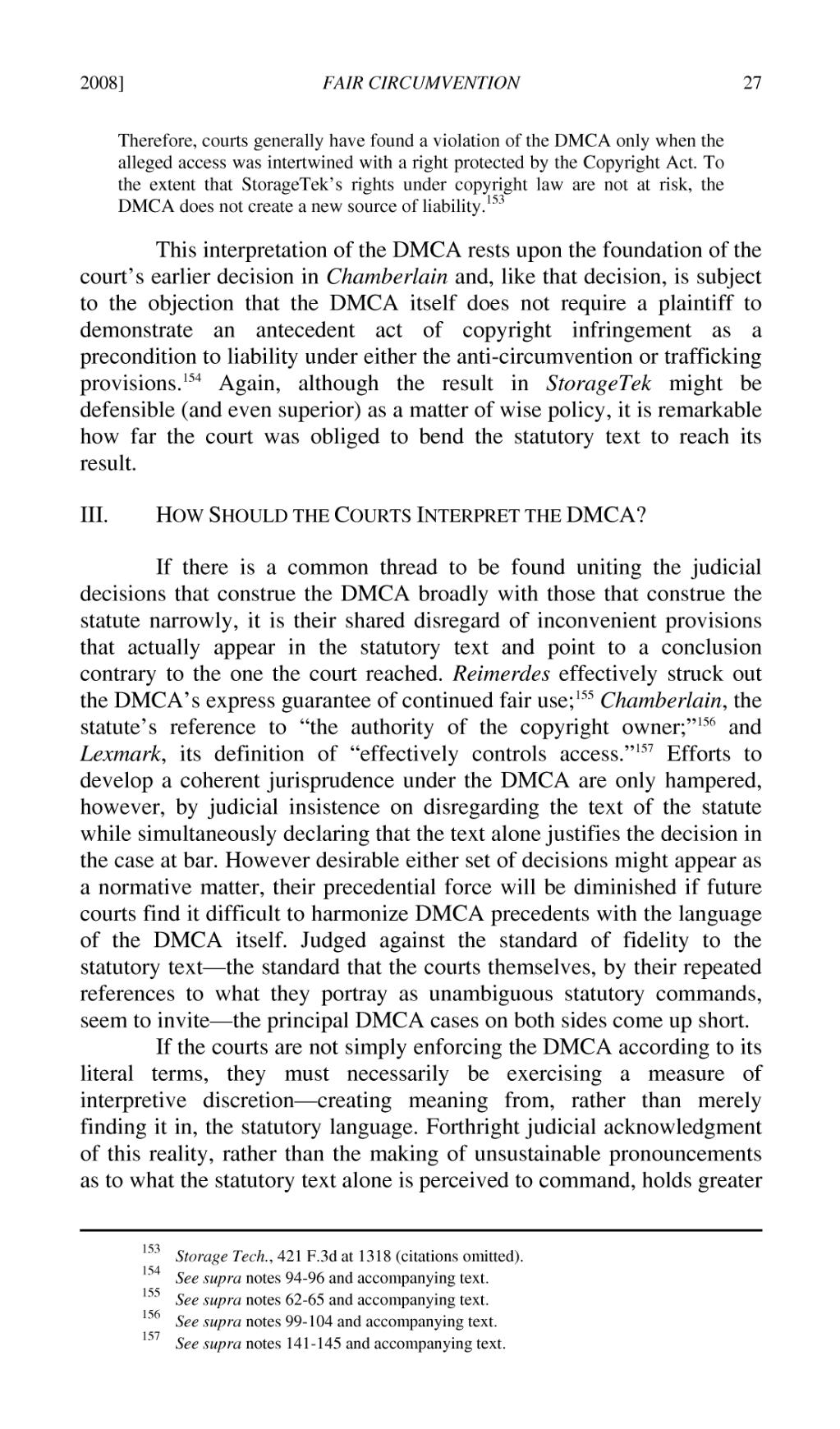Therefore, courts generally have found a violation of the DMCA only when the alleged access was intertwined with a right protected by the Copyright Act. To the extent that StorageTek’s rights under copyright law are not at risk, the DMCA does not create a new source of liability.[1]
This interpretation of the DMCA rests upon the foundation of the court’s earlier decision in Chamberlain and, like that decision, is subject to the objection that the DMCA itself does not require a plaintiff to demonstrate an antecedent act of copyright infringement as a precondition to liability under either the anti-circumvention or trafficking provisions.[2] Again, although the result in StorageTek might be defensible (and even superior) as a matter of wise policy, it is remarkable how far the court was obliged to bend the statutory text to reach its result.
III. How Should the Courts Interpret the DMCA?
If there is a common thread to be found uniting the judicial decisions that construe the DMCA broadly with those that construe the statute narrowly, it is their shared disregard of inconvenient provisions that actually appear in the statutory text and point to a conclusion contrary to the one the court reached. Reimerdes effectively struck out the DMCA’s express guarantee of continued fair use;[3] Chamberlain, the statute’s reference to “the authority of the copyright owner;”[4] and Lexmark, its definition of “effectively controls access.”[5] Efforts to develop a coherent jurisprudence under the DMCA are only hampered, however, by judicial insistence on disregarding the text of the statute while simultaneously declaring that the text alone justifies the decision in the case at bar. However desirable either set of decisions might appear as a normative matter, their precedential force will be diminished if future courts find it difficult to harmonize DMCA precedents with the language of the DMCA itself. Judged against the standard of fidelity to the statutory text—the standard that the courts themselves, by their repeated references to what they portray as unambiguous statutory commands, seem to invite—the principal DMCA cases on both sides come up short.
If the courts are not simply enforcing the DMCA according to its literal terms, they must necessarily be exercising a measure of interpretive discretion—creating meaning from, rather than merely finding it in, the statutory language. Forthright judicial acknowledgment of this reality, rather than the making of unsustainable pronouncements as to what the statutory text alone is perceived to command, holds greater
